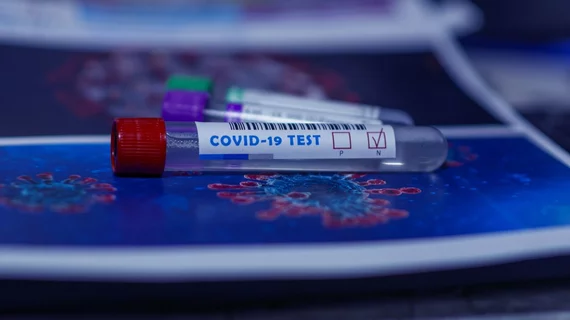The condition of brain fog that some COVID-19 patients experience could be caused by an immune response to the virus.
That’s according to a small study by researchers from the National Institute of Neurological Disorders and Stroke (NINDS), which found the immune response triggered by the virus could actually cause damage to the brain’s blood vessels, potentially leading to short- and long-term neurological symptoms. The study, published in Brain, examined brain changes in nine patients who died suddenly after contracting COVID-19.
According to researchers, antibodies are involved in an attack on the cells lining the brain’s blood vessels, leading to inflammation and damage. In fact, the antibodies produced in response to a COVID-19 infection may mistakenly target cells that are crucial to the blood-brain barrier. Damage to the endothelial cells, which help form the blood-brain barrier and keep harmful substances from reaching the brain, can lead to leakage of proteins from the blood. Some COVID-19 patients can experience bleeds and clots as a result and increase risk of stroke.
Scientists and researchers are eager to understand how COVID-19 impacts the brain, as it could help develop the future treatments for those impacted by lingering COVID-19 symptoms. These symptoms can include headache, fatigue, loss of taste and smell, sleep problems, and brain fog.
“Patients often develop neurological complications with COVID-19, but the underlying pathophysiological process is not well understood,” Avindra Nath, MD, clinical director at NINDS and the senior author of the study, said in a statement. “We had previously shown blood vessel damage and inflammation in patients’ brains at autopsy, but we didn’t understand the cause of the damage. I think in this paper we’ve gained important insight into the cascade of events.”
In the study, researchers observed immune complexes that can damage tissue by causing inflammation. The findings align with previous research by the group, which found evidence of brain damage caused by thinning and leaky blood vessels. The latest study by Nath and his team examined brain tissue from a subset of patients in the previous study. Nine individuals, aged 24 to 73, were chosen for the study because they showed signs of blood vessel damage in the brain based on structural brain scans. The researchers then looked at neuroinflammation and immune responses using immunohistochemistry, which uses antibodies to identify specific marker proteins in the tissues.
In addition to leaky blood vessels, they also found evidence that damage to endothelial cells was likely due to an immune response. The evidence suggest an antibody-mediated attack that activates endothelial cells.
“Activation of the endothelial cells brings platelets that stick to the blood vessel walls, causing clots to form and leakage to occur,” Nath said. “At the same time the tight junctions between the endothelial cells get disrupted causing them to leak. Once leakage occurs, immune cells such as macrophages may come to repair the damage, setting up inflammation. This, in turn, causes damage to neurons.”

